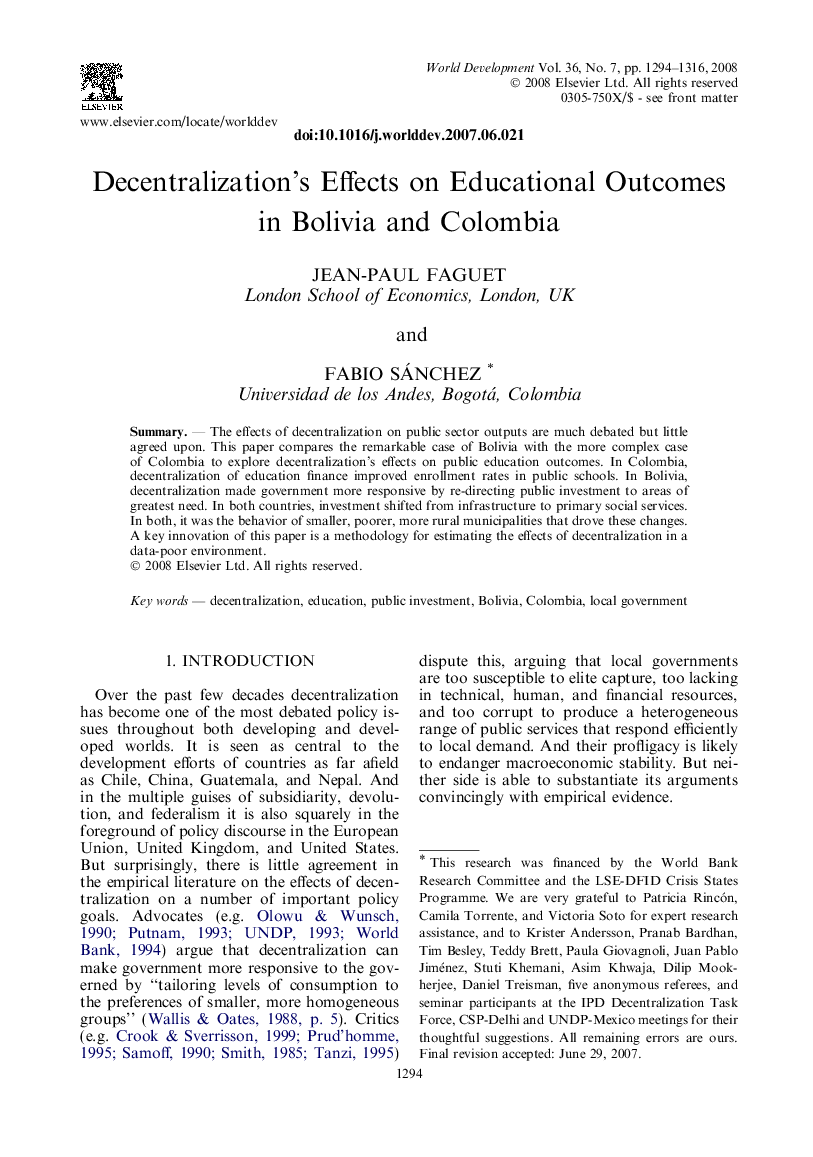| Article ID | Journal | Published Year | Pages | File Type |
|---|---|---|---|---|
| 992516 | World Development | 2008 | 23 Pages |
SummaryThe effects of decentralization on public sector outputs are much debated but little agreed upon. This paper compares the remarkable case of Bolivia with the more complex case of Colombia to explore decentralization’s effects on public education outcomes. In Colombia, decentralization of education finance improved enrollment rates in public schools. In Bolivia, decentralization made government more responsive by re-directing public investment to areas of greatest need. In both countries, investment shifted from infrastructure to primary social services. In both, it was the behavior of smaller, poorer, more rural municipalities that drove these changes. A key innovation of this paper is a methodology for estimating the effects of decentralization in a data-poor environment.
